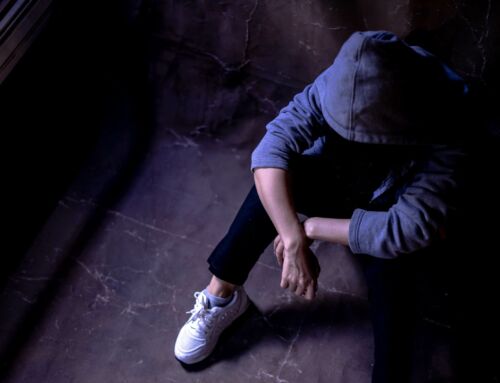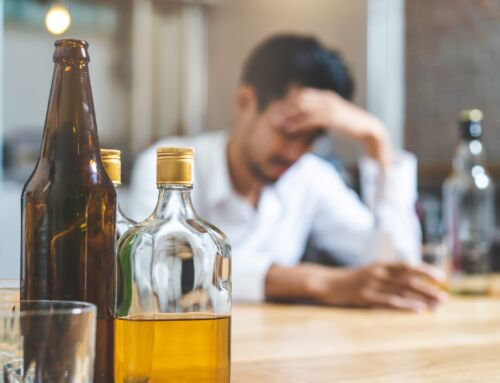Marijuana Addiction: Effects and Abuse
Marijuana is a psychoactive drug that alters the perception of its users. The chemical compound THC is the culprit that elicits the psychedelic, “high” effect. THC also determines the potency and strength of the substance. The effects of Marijuana look different for everyone and depending on how it is consumed, smoking Marijuana produces a faster, shorter-lived high than taking it orally.
The effects of Marijuana include:
– Feelings of happiness
– Mild hallucinations
– Increased appetite
– Reduction in anxiety
Due to the ever-evolving and ever-changing regulations of Marijuana’s legality, the substance remains suspended between being “potentially beneficial” and the level one substance that it has been historically classified as, for quite some time. Back in 2020, 34.5% of young adults ages 18-25 reported using Marijuana in the past year, illustrating the highest percentage in the population from adults older than 26, and adolescents between 10-17, accounting for 16.3% and 20.1% respectively.
An Increase In THC Content
Studies from across the world have illustrated that the THC content in Cannabis resin and herbal cannabis has increased by .57% and .29% each year, since 1975. Simply put, between 1970 and 2020, the potency of THC increased by 28.5%. What’s concerning here is that with a higher concentration of the substance, comes an increased risk for psychosis and potential dependence or Marijuana addiction. With these higher rates of potency also comes higher rates of harm and danger. The intense side effects of high potency THC are a growing concern for addiction treatment specialists. Simply put—the higher the THC content, the more likely one is to develop cannabis abuse disorder. Marijuana extracts, especially those used for dabbing and edibles, can have an average of 50-90% THC.
The risk factors are not just limited to psychosis and dependence. Additional studies have concluded that there is a 22% higher risk of hospitalization among habitual cannabis users. While there may not be risks for respiratory illnesses or drug-related deaths, bodily injuries remained the number one factor that required hospital or emergency care for marijuana users.
The Other Active Ingredient In Marijuana: CBD
Though the ingredient in Marijuana that is most cause for concern is THC, Cannabis also contains the compound cannabidiol or CBD. CBD is linked with other elements in the body. The elements it triggers are more in line with overall wellness. More research needs to be done on how CBD improves conditions like decreased anxiety, insomnia, or chronic pain. But as it stands currently, the FDA has approved the use of CBD for epilepsy.
Addiction To Marijuana
Marijuana addiction can be clinically diagnosed and have a negative impact on that person’s life. Patients can develop a psychological dependence in the same way that other addictions can develop. When a person uses Cannabis, cannabinoid receptors in the brain are activated by a neurotransmitter called anandamide. THC mimics and blocks the actions of natural neurotransmitters like anandamide, to the point that if prolonged use happens, the body will be rendered incapable of producing the neurotransmitter on its own. Generally speaking, Marijuana use disorder is only diagnosed in severe cases, which according to the CDC, of those who regularly use it, 3 in 10 meet the qualifications of a use disorder.
With that being said, the risks are higher in those who begin using the drug in their teen years and in others who use it more frequently. Recent research shows that people who begin using Marijuana before age 18, are 4-7 times more likely to develop a Marijuana use disorder over their older counterparts. Dependence on the drug happens when the brain adjusts and adapts, externally producing endocannabinoid neurotransmitters, resulting in a reduction in sensitivity to what is created naturally.
Some common signs of Marijuana use disorders include, but are not limited to:
– Using more than intended or needing more to achieve the same high
– Continuing to use, despite the negative ramifications like physical or psychological concerns
– Neglecting or falling behind on responsibilities, due to excessive use
– Prioritizing Marijuana over activities you previously enjoyed doing (i.e., spending time with family and friends
– Dealing with uncomfortable withdrawal symptoms when stopping or cutting back on Marijuana consumption
Recognizing A Marijuana Addiction
One of the biggest signs of Marijuana use disorder, as mentioned earlier, is the prodigious desire to use, no matter the consequences. For many, this could mean getting high while on the job or spending more on the drug than is affordable. Most people who are addicted do not feel normal until they get high. Some of the clinical warning signs of addiction to Marijuana include:
– The inability to cut down on intake, even if you have the desire to do so
– Consuming more than intended or for a longer duration of time.
Seeking help through treatment can teach users how to get over the emotional and physical hurdles that Marijuana addiction and other drugs can have on you. Treatment options are diverse, but it often includes intervention from a professional who can couch patients through rough days and help them inch closer to the ultimate goal of sobriety. At Maryland Addiction Recovery Center, not only do we seek to free our patients from the shackles of addiction, part of our mission is also to discuss important topics, trends, and historical input that is relevant to this community.
If you or someone you know needs help for addiction or co-occurring disorder issues, please give us a call. Maryland Addiction Recovery Center offers the most comprehensive dual diagnosis addiction treatment in the Mid-Atlantic area. If we aren’t the best fit for you or your loved one, we will take the necessary time to work with you to find a treatment center or provider that better fits your needs. Please give us a call at (866) 925-5116 or email our team at info@marylandaddictionrecovery.com. For more information on all of our drug addiction, alcohol addiction and co-occurring disorder services and recovery resources, please visit our website at www.marylandaddictionrecovery.com.






